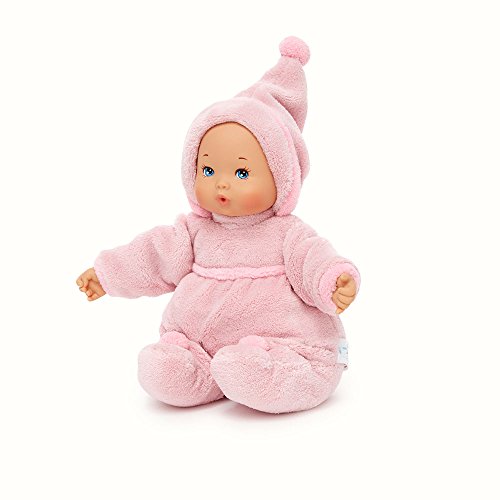Dementia is a complex neurodegenerative condition that affects millions of individuals worldwide. It is characterized by cognitive decline, memory loss, and changes in behavior and personality. As dementia progresses, individuals may face challenges in various aspects of their lives, including social interaction and emotional well-being. Dolls have shown promise in providing comfort, stimulation, and emotional support for dementia patients. This article will delve into the importance of selecting the best dolls for dementia patients, understanding their unique needs, and exploring the key features to consider. By choosing dolls that cater to the specific requirements of individuals with dementia, we can enhance their quality of life and promote their overall well-being.
Understanding the Needs of Dementia Patients
A. Challenges Faced by Dementia Patients and the Therapeutic Benefits of Dolls
Dementia patients often experience difficulties in their daily lives, such as confusion, agitation, and feelings of loneliness. These challenges can impact their overall well-being and quality of life. However, dolls have emerged as a potential therapeutic tool for dementia patients, offering a range of benefits. We will explore the challenges faced by dementia patients and how dolls can address these challenges by providing comfort, companionship, and stimulation.
B. Evoking Memories and Providing Emotional Support
One of the unique advantages of dolls for dementia patients is their ability to evoke memories and provide emotional support. Dementia often affects memory recall, and individuals may struggle to remember significant aspects of their lives. Dolls, with their familiar shapes and features, can trigger memories from the past and help individuals reconnect with their personal history. We will discuss how dolls can provide emotional support, comfort, and companionship for individuals with dementia.
A. Realistic Appearance
1. The Importance of Lifelike Features for Dementia Patients
Dolls with realistic appearances can have a profound impact on dementia patients. The natural features of these dolls can enhance the connection and engagement of individuals, promoting a sense of familiarity and comfort. We will explore the importance of natural features in dolls and how they can positively influence the emotional well-being of dementia patients.
2. Highlighting Specific Doll Brands/Models Known for Realistic Appearance
To aid in the selection process, we will provide examples of doll brands and models renowned for their realistic appearance. These dolls prioritize attention to detail, ensuring that they closely resemble real infants or adults. By presenting specific brands and models, we can assist readers in making informed choices when selecting dolls for dementia patients.
B. Soft and Huggable
1. The Significance of Softness and Huggability in Dolls
Softness and huggability are crucial considerations when choosing dolls for dementia patients. These features provide a tactile experience, offering comfort and sensory stimulation. We will explore the benefits of soft and huggable dolls and how they can contribute to the overall well-being of individuals with dementia.
2. Recommending Doll Options with Soft and Cuddly Textures
To assist readers in searching for suitable dolls, we recommend specific doll options known for their soft and cuddly textures. These dolls are designed to provide a gentle and comforting touch, enhancing the sensory experience for dementia patients.
C. Simple and Familiar
1. The Importance of Simple Features and Familiar Clothing
Dementia patients may find dolls with simple features and tight clothing more accessible and relatable. These dolls help individuals with dementia connect more efficiently, as complex features can be overwhelming and confusing. We will discuss the significance of simplicity and familiarity in dolls for dementia patients.
2. Suggesting Doll Options Resembling Familiar Characters or Representing Different Stages of Life
To cater to the diverse preferences and backgrounds of dementia patients, we will suggest doll options that resemble familiar characters or represent different stages of life. These dolls can evoke positive memories and associations, promoting a sense of connection and engagement.
IV. Safety Considerations
A. Ensuring Safe Materials and Construction in Dolls for Dementia Patients
Safety is of paramount importance when choosing dolls for dementia patients. Selecting dolls made from safe materials and constructed with durability in mind is essential. We will discuss the potential safety hazards to avoid and highlight doll brands/models that prioritize safety and durability.
V. Recommended Doll Brands and Models
A. Overview of Doll Brands Specializing in Dolls for Dementia Patients
To guide readers in their search for the best dolls for dementia patients, we will provide an overview of reputable doll brands that specialize in creating dolls for individuals with dementia. These brands focus on understanding the unique needs of dementia patients and designing dolls specifically tailored to meet those needs.
B. Highlighting Specific Doll Models from Each Brand, Along with Their Key Features
Within each brand, we will highlight specific doll models that stand out regarding their features and benefits. By presenting a range of options, readers can gain insights into the various dolls available and make informed decisions based on the specific requirements of the dementia patient.
VI. Additional Tips for Choosing Dolls
A. Considering Personal Preferences and Interests of the Dementia Patient
While the general features and recommendations are essential, it is equally important to consider the personal preferences and interests of the dementia patient. We will emphasize the significance of individualized selection, considering gender, ethnicity, and personal history, to ensure a more meaningful and engaging doll experience.
B. Involving Family Members or Caregivers in the Selection Process
Family members and caregivers play a vital role in the care of dementia patients. Involving them in the doll selection process can provide valuable insights into the individual’s preferences, history, and emotional needs. We will suggest ways to collaborate with family members and caregivers to make informed choices and ensure a more personalized doll experience.
Conclusion
In conclusion, dolls have shown tremendous potential in providing comfort, stimulation, and emotional support for dementia patients. By understanding the unique needs of individuals with dementia and considering key features such as realistic appearance, softness, simplicity, and safety, we can select dolls that enhance their overall well-being. We have explored various doll brands and models specializing in creating dolls for dementia patients, providing readers with a comprehensive guide to making informed choices. Ultimately, by incorporating dolls into the care of dementia patients, we can improve their quality of life, promote emotional connection, and foster a sense of companionship and comfort.
Frequently Aksed Question
1. What are the key features when selecting a doll for a dementia patient to help with memory loss?
The key features to look for when selecting a doll for a dementia patient to help with memory loss include a realistic appearance, soft and huggable texture, and simple features that resemble familiar objects or individuals. These features can trigger memories and create a sense of comfort and familiarity for the individual.
2. How can dolls effectively stimulate memory recall and emotional connection for dementia patients?
Dolls can effectively stimulate memory recall and emotional connection for dementia patients by evoking positive memories associated with caregiving, nurturing, or past experiences. The familiar presence of a doll can bring back emotions and memories, providing a source of comfort and promoting engagement.
3. Are there specific types of dolls better suited for certain stages of dementia or memory loss?
While no specific types of dolls are universally suited for certain stages of dementia or types of memory loss, it is essential to consider the individual’s preferences and needs. Some individuals may benefit from dolls resembling infants, as they can evoke parenting memories, while others may find comfort in dolls representing older adults or familiar characters.
4. How can caregivers incorporate dolls into daily routines and activities for dementia patients?
Caregivers can incorporate dolls into daily routines and activities for dementia patients by encouraging interaction, such as holding, talking to, or dressing the doll together. Dolls can be introduced during reminiscence therapy, story-sharing sessions, or as companions during mealtime or recreational activities. Caregivers should adopt dolls based on the individual’s interests and comfort levels.
5. What are some potential drawbacks or limitations to using dolls as a memory aid for dementia patients, and how can these be addressed
Potential drawbacks or limitations of using dolls as a memory aid for dementia patients include confusion if the doll is not recognized as a toy and mistaking it for a real baby or person. Caregivers should provide clear explanations and reassurance when introducing dolls. Additionally, some individuals may not respond positively to dolls or find them unappealing. In such cases, alternative memory aids or therapeutic activities should be explored, tailored to the individual’s preferences and needs.
Last update on 2026-02-19 / Affiliate links / Images from Amazon Product Advertising API










